Family law includes the legal issues that can arise within a family unit. This can include divorce, child custody, adoption, prenuptial agreements, guardianships, and more.
The main focus of family law is to protect the rights of all family members, as well as to resolve disputes and disagreements. It also covers property and assets division, child support, parental rights and obligations, and spousal maintenance.
If you are dealing with any situation involving your family unit, it’s essential to hire a professional with experience. Dealing with family is already challenging; that’s why you’ll need reliable and knowledgeable counsel.
To help make the process easier, here are five things to consider when hiring a family lawyer.
Reputation
A family lawyer’s reputation is a significant factor for many reasons. Firstly, you need to feel confident about your lawyer’s track record. You want to make sure they have experience handling similar cases with a positive outcome.
Secondly, a family lawyer with a good reputation will understand the emotional nature of family law cases and will be able to provide the necessary support and guidance to their clients.
Experience
Experience is vital when choosing a family lawyer as it allows them to gain the insights and skills needed to handle complex family law cases.
An experienced lawyer has likely dealt with various issues and will have first-hand knowledge to handle your case with sensitivity and efficiency. Familiarity with the courts, court procedures and common tactics used in defending a client’s interests will all be beneficial.
An experienced attorney will provide the best advice and guidance through complex legal processes. They can clearly explain the possible consequences associated with each decision. With an experienced lawyer, you will have confidence in knowing your case is in good hands.
Communication
Lawyers need to know how to communicate effectively with clients, which is vital for building a professional relationship of trust and understanding. Effective communication is key to understanding the legal process, a client’s needs, and how best to represent them in court.
A lawyer needs to be able to explain legal proceedings to the client in a way that is easily understood and provides a clear path forward. Family lawyers need to be able to listen and comprehend any worries or issues their clients may face to give the best legal counsel.
When attorneys communicate effectively and openly with their clients, the legal process can be smoother, more efficient, and more successful.
Fee Structure
Lawyers typically charge different rates, so knowing how much you will pay for their services is necessary. It’s also important to understand the scope and nature of their services.
Knowing the lawyer’s fee structure allows you to choose a lawyer within your budget. The lawyer should also be able to provide you with a payment plan if needed so that their services stay accessible.
Some lawyers even offer a sliding fee scale based on income or have a low-cost fee structure for those who cannot afford their services. You must inquire about these options to find out if they are available, as they can help make the legal process financially possible.
Location
You must consider your lawyer’s location because you will most likely spend time in their office. Consider the office hours as well; if your work or family obligations make it difficult to visit the office during regular hours, you’ll want to make sure they offer flexible meeting times.
Also, take note of the location in terms of the court. If your case is likely to involve appearing in court, you’ll want a lawyer close to the court to ensure minimal travel time and expenses.
In addition, consider the lawyer’s connections in the legal community, as it may give them an advantage in handling your case.
Conclusion
Researching a lawyer’s background, experience, and fees can ensure that you have the best representation for your legal matter. Consider how you feel about the lawyer you choose, as they will represent you in court. Lastly, always read and understand any legal documents before signing them. Taking the proper steps ensures that you have the right family lawyer for your case.
If you require an attorney with experience in family law in Abbotsford, contact us at Pathfinder Law. We also offer legal services for civil litigation, estate law, employment law, and more.








